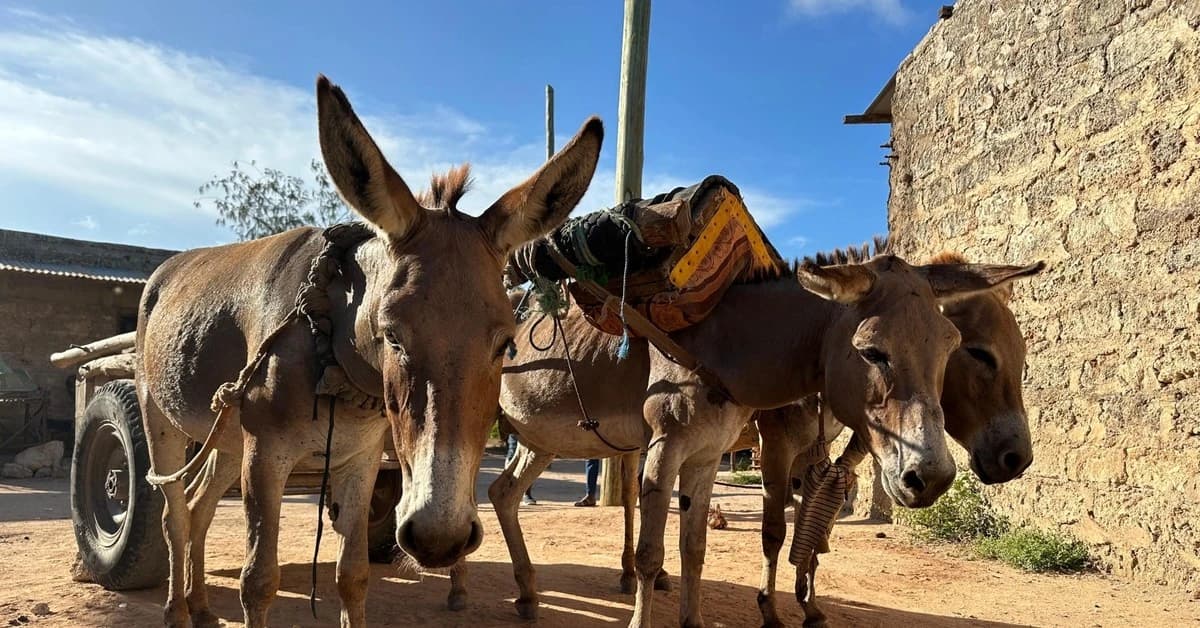We're loading the full news article for you. This includes the article content, images, author information, and related articles.
Police in Mavoko have recovered twenty donkeys suspected to be stolen after a tip-off from villagers, highlighting a broader crackdown on livestock theft and the importance of donkeys to rural livelihoods.

Machakos, Kenya – Police in Mavoko Sub-County have recovered 20 donkeys suspected to have been stolenfollowing a tip-off from local residents, intensifying Kenya’s crackdown on livestock theft and rural banditry.
Authorities reported that officers intercepted the herd along a village road on Friday evening after suspicious activity was reported by community members. The suspected thief fled into nearby fields, abandoning the animals as police approached.
The donkeys were taken to Mavoko Police Station for safekeeping, with officers urging rightful owners to come forward and identify their animals.
“Donkeys are the lifeline of rural households. They provide transportation, carry goods to market, and support families’ livelihoods. We cannot allow criminals to deprive communities of their only means of income and mobility,” one senior officer told reporters.
The recovery comes days after residents in Elgeyo Marakwet County voluntarily surrendered illegal firearms as part of a national disarmament programme aimed at curbing cattle rustling and cross-border banditry.
Livestock theft has long plagued rural Kenya, with animals often sold to illegal slaughterhouses or trafficked across borders for meat. Police believe some of these syndicates are linked to organised criminal networks operating in multiple counties.
Animal-rights activists and farming cooperatives say donkey theft devastates rural households that rely heavily on the animals for:
Transporting water, firewood, and farm produce
Generating income through delivery services
Providing affordable mobility in remote regions with poor road access
Losing a donkey, which can cost up to KSh 15,000–20,000, can wipe out a family’s only means of transport and income, forcing children to miss school and families to walk long distances for basic needs.
Community leaders and animal welfare organisations are urging the government to:
Introduce harsher penalties for livestock theft
Invest in livestock microchipping and digital tracking systems
Strengthen community policing initiatives to detect crimes early
Expand rural veterinary and rescue services for recovered animals
The Kenya Network for Animal Welfare (KNAW) noted that donkey populations have been shrinking in some regions due to theft and unregulated slaughter for hides exported to Asia for the production of ejiao, a traditional Chinese medicine product.
The National Police Service has pledged to continue night patrols, roadblock checks, and intelligence-led operations to dismantle livestock theft networks. Officials are also encouraging communities to form Nyumba Kumi neighbourhood watch groups to report suspicious activity quickly
Residents have welcomed the recovery but want the government to act swiftly to arrest the fugitive suspect and break the cycle of thefts that have left many rural households vulnerable.
“Recovering these animals is only the first step,” said a local elder in Mavoko. “We want to see the thieves arrested, prosecuted, and jailed to send a clear message that stealing our livelihoods will not be tolerated.”
Police said the donkeys will remain at the station until owners provide proof of identification, after which the animals will be released back to their rightful families. Investigations into the theft are ongoing, with authorities pursuing leads on the fugitive suspect and possible accomplices.
The incident adds urgency to calls for a national livestock protection strategy to safeguard rural economies and address the root causes of banditry, from poverty to weak law enforcement in remote areas.
Keep the conversation in one place—threads here stay linked to the story and in the forums.
Sign in to start a discussion
Start a conversation about this story and keep it linked here.
Other hot threads
E-sports and Gaming Community in Kenya
Active 9 months ago
The Role of Technology in Modern Agriculture (AgriTech)
Active 9 months ago
Popular Recreational Activities Across Counties
Active 9 months ago
Investing in Youth Sports Development Programs
Active 9 months ago